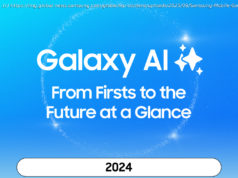US-exclusive beta launches this week.
Advertising giant Google has announced it is getting into the cloud gaming business, launching a beta test for Project Stream — an effort to bring triple-A gaming into its Chrome browser on low-end hardware.
The idea behind cloud gaming is sound: Rather than needing an expensive high-power graphics card and processor in your desktop, cloud gaming farms out the heavy computational work to remote servers which render the game content then stream it back to you as a video. Your input is then sent back to the server for processing — adding latency, but reducing the difficulty of running Crysis to that of running Netflix. The technology has suffered from a slow start, however: Earlier pioneers like OnLive and Gaikai were either acquired by larger third parties or fell by the wayside, though others — like LiquidSky — formed to take their place.
Now, Google is joining their ranks, using its already-impressive cloud computing infrastructure and streaming know-how to power Project Stream, a beta-test programme to run triple-A PC games directly in the Chrome web browser.
‘ We’ve partnered with one of the most innovative and successful video game publishers, Ubisoft, to stream their soon-to-be released Assassin’s Creed Odyssey to your Chrome browser on a laptop or desktop, ‘ explains product manager Catherine Hsiao of the project. ‘ The idea of streaming such graphically-rich content that requires near-instant interaction between the game controller and the graphics on the screen poses a number of challenges. When streaming TV or movies, consumers are comfortable with a few seconds of buffering at the start, but streaming high-quality games requires latency measured in milliseconds, with no graphic degradation.
‘ The technology and creativity behind these AAA video games is extraordinary—from incredible detail and life-like movement of the characters’ skin, clothing, and hair, to the massive scale of the world in which the game unfolds, down to every last blade of grass. Every pixel is powered by an array of real-time rendering technology, artistry, visual effects, animation, simulation, physics and dynamics. We’re inspired by the game creators who spend years crafting these amazing worlds, adventures and experiences, and we’re building technology that we hope will support and empower that creativity. ‘
While the beta launches on October 5th, those interested in trying the technology out need to fit a list of requirements: Be older than 17; have an internet connection of 25Mb/s or greater; and, this excluding the largest number of possible participants, be located in the US. Hsiao has also warned that spaces are limited, leaving those interested in participating scrambling to apply on the official website.






